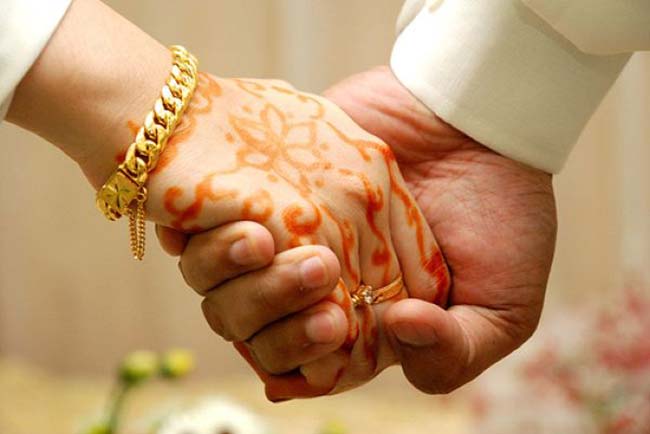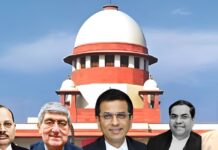After remaining headless for five years State Human Rights Commission (SHRC), Justice (retired) Bilal Nazki has recently taken over as its chairman. Born on November 18, 1947 in Srinagar, Nazki earlier headed Human Rights Commission in Bihar. An Aligarh Muslim University law graduate, Nazki’s major career break came in 1992 when he was appointed as the Advocate General of the J&K government, then led by the governor. He was kidnapped by militants before being appointed as AG. In January 1995 he was appointed as a judge of the high court in Srinagar, a position he held till October 1997. In the capacity of an advocate general he was defending the actions of the state, especially on the human rights and after becoming the judge he heard similar cases as a judge.
As judge, the handling of Jalil Andrabi case earned him a lot of respect. But it was perhaps the same case that led to his transfer. He tells Saima Bhat that by letting SHRC reaming headless for five years, the institution has lost faith among ordinary people.

Kashmir Life (KL): You have previously headed the SHRC in Bihar. How was it different from Kashmir?
Justice Bilal Nazki (JBN): It is too early to say about difference because I have been here for just two weeks. But generally there are not much differences as problems of people are same everywhere. So response to such problems is also same. Except for that we have a peculiar problems that gives rise to certain situations as far as human rights are concerned, which are not in Bihar.
What I feel in Kashmir, I may be wrong as well, is that people talk about human rights but they will not agitate, they will not come to us. They want commission to do it, which is not possible in every case, I need people who can contest if need arises.
In Suo moto cases we test which case can reach to logical and fair conclusion and which cannot, without the participation of other side. I think people of Kashmir are not much aware about human rights and the potential of human rights commission.
KL: Is SHRC a toothless commission?
JBN: That is not true. I have tried it for three years in Bihar.
I believe a child is always born toothless but then it depends on growth, so similarly we can give it teeth and it will start biting also.
For that we need cooperation from people, media and of course from the government.
We are going to sensitize government by starting awareness programmes for bureaucrats, officers and policemen who are in direct contact with people. I am getting good response from the government.
I had a meeting with IGP Kashmir and Divisional Commissioner Kashmir recently. They have promised to appoint a nodal officer in every department, who will be coordinating with SHRC.
While Div Com has already nominated 45 nodal officers, I am waiting for a list from the IGP. We will have a nodal officer in every district who will be in contact with SHRC. I am looking for cooperation from media as their reporting can help us sensitize a wide range of people.
Besides, there is confusion among people that either we are toothless or we are equal to High Court. We are neither.
But we know how to implement our orders. As per HR violation Act, whatever recommendations we give, are bindings for any court.
KL: What are the biggest challenges in Kashmir?
JBN: People are not aware of their right and they are not aware that SHRC is an effective institution. Problem might be that for five years there was no chairman, sometimes they appointed people who could not have that credibility. Therefore people didn’t take SHRC as a credible institution. So my first job is to make it credible, people should feel that if they come here, they will get the relief.
I don’t blame people losing faith in SHRC as commission has not worked for many years, and people who were there, some of them were great, but a few were not. And if you keep a commission headless for five years, it will obviously suffer.
My problem in Bihar was different than what it is in Kashmir. In Bihar I started from zero but here I am starting at minus, here it has a bad reputation.
KL: What is the quantum of unsolved cases at present? Did you dispose off any case so far?
JBN: Since last chairman left, commission had 2000 cases, out of which only 1000 actually fall under our jurisdiction and we have disposed them off.
KL: Any big cases that are pending for long?
JBN: Yes, recently I passed an order where we ordered compensation of Rs 2 lakhs to a person, whose leg was amputated, who was shot at. And still I will say it is just beginning, I am here for just a week.
KL: The victims of various cases like Kunan Poshpora, Salian Massacre, mass graves, enforced disappearance, are still waiting for justice. How long they have to wait? What is the status of these cases?
JBN: I will only talk about those cases which are before me. The cases you are talking about have been decided by this commission. They are either going on in other courts or stayed by the courts.
KL: You played an important role in Jalil Andrabi case. How was judiciary functioning then?
JBN: I did my job in that case. That was just another case for me. In my career of 15 years as a judge I have decided 60,000 cases and that was one among them. No judge has any special case; I have handled much bigger cases in Mumbai and Andhra Pradesh.
Judiciary was functioning well that time as well. I got it investigated by one of the finest officers, an IPS officer. We just ensured investigation is fair and we had fair and honest officer.
KL: Since 2011, this commission was headless. Do you think it has compromised the work of such an important institution?
JBN: Indeed government has failed in keeping an institution going. They kept it without chairman and members for so long; it is failure of the government. The mandate of the human rights Act is not only to decide the issues related to HR issues, but it is to make people aware of their human rights. My mandate is much bigger. If you don’t keep anybody there then you are yourself defeating the law, you have made.
KL: Do you have sufficient manpower in the commission?
JBN: So far it is fine but I can’t remain confined to this room only. I need to diversify my role. I intend to do certain more things. They must see or feel me everywhere in the state. I need additional staff to make every child of state aware of his human rights. I have to go to school, colleges, fields, streets, jails, police stations, hospitals to make all aware because these are the places where human rights violations take place. I need skilled, specialised staff for that and my experience of three years will help. Bihar’s HRC is this time one of the best in India.
KL: You still have an investigating officer of SP rank?
JBN: No, we have an IGP rank officer who is heading our investigating wing but it is vacant presently. This time we have a SP rank officer with us.
KL: Have there been any amendments in the J&K protection of Human Rights Act, 1997 since it was formulated?
JBN: There has been just one amendment in the section 6. The term of the chairman has been changed from three to five years and the age has been changed to 75 years.
KL: Most of the cases related to HR abuse involving armed forces. Will you be able to pursue those cases? If not then how do you handle such cases?
JBN: We pursue them also though there is a problem of jurisdiction but still there is a way.
KL: Has anybody filed any case during recent crisis of 2016? If yes then what sort of cases were filed? If not, did you take any step to file a case as more than 100 unarmed civilians were killed, more than 1000 were injured in their eyes?
JBN: No. Nobody came to us.
KL: In any state of India SHRC takes suo motu cognizance of HRV, then why same doesn’t happen here?
JBN: We did. Almost ten cases we took in last one week like in the incident that happened in Barmulla jail, Shalimar boy Kaiser Hameed who before dying told his mother that he has been killed, in search of old age pension, disabled population who have never been to schools, Gowhar Nazir’s killing, encroachment of a college land in Nawakadal, for cancer patients who were purchasing drugs at higher costs than what was available in hospitals, salary of GMC guards and now the fee that private schools are charging students.















